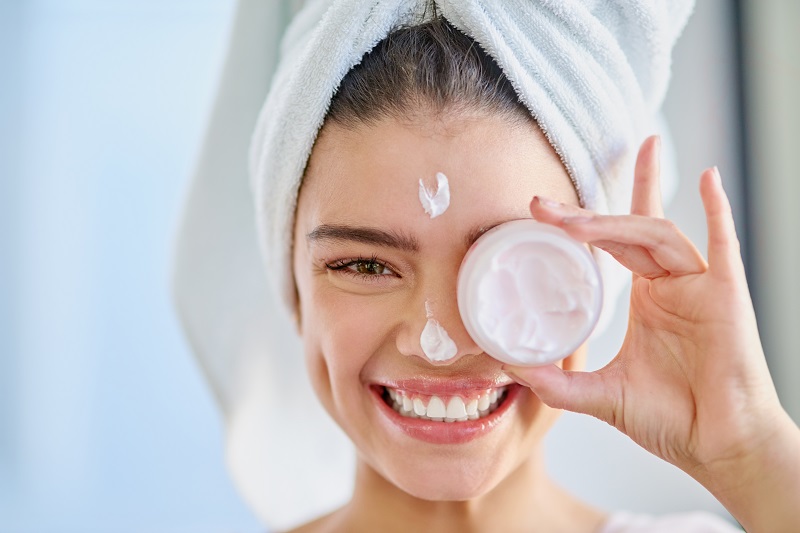Buzz Haven: Your Daily Dose of News
Stay informed and entertained with the latest buzz in news, trends, and insights.
Moisturizer Mysteries: What Your Skin Wants to Know
Unlock the secrets of skincare! Discover what your skin truly craves in Moisturizer Mysteries. Your ultimate guide to radiant skin awaits!
The Science Behind Moisturizers: How They Work for Your Skin
Moisturizers play a vital role in maintaining skin health by providing hydration and reinforcing the skin's protective barrier. They typically contain three main types of ingredients: humectants, emollients, and occlusives. Humectants such as glycerin and hyaluronic acid attract moisture from the environment and deepen the skin's hydration level. Emollients like shea butter and fatty acids fill in the gaps between skin cells, giving the skin a smoother appearance. Finally, occlusives, such as petroleum jelly, create a barrier that retains moisture by preventing water loss. For a deep dive into these components, check out this article on Healthline.
The effectiveness of moisturizers isn't just magic; it’s backed by science. When applied to the skin, these products work synergistically to address various skin types and concerns. For instance, people with dry skin may benefit more from thicker creams containing higher concentrations of occlusives, while those with oily skin might prefer lighter lotions with more humectants. Research has shown that maintaining skin hydration can improve its overall health, elasticity, and appearance. For more comprehensive insights, you can refer to NCBI for studies on skincare effectiveness.

5 Common Myths About Moisturizers Debunked
Moisturizers are often misunderstood, leading to the proliferation of myths that can confuse consumers. One common myth is that oily skin doesn't need moisture. In reality, all skin types require hydration to maintain balance. According to the American Academy of Dermatology, even oily skin can develop dryness, which can lead to the overproduction of oil as the skin attempts to compensate. Another prevalent myth is that thicker creams are always more effective, when in fact, the best moisturizer for your skin type may be a lightweight lotion or gel that hydrates without clogging pores.
Another misconception is that you only need to moisturize in the winter months. The truth is that moisturizing should be a year-round routine to protect your skin from environmental damage and retain its natural moisture balance. Furthermore, many people believe that they can skip moisturizer because they use sunscreen. However, sunscreen protects against UV rays but does not provide the hydration your skin needs. To learn more about effective skincare routines, check out resources from PubMed Central. Finally, there's a myth that only products labeled 'non-comedogenic' are suitable for acne-prone skin, but individual reactions can vary based on ingredients, not just labels.
What Ingredients Should You Look for in a Moisturizer?
When choosing a moisturizer, it's essential to look for ingredients that effectively hydrate and nourish your skin. Key components to consider include hyaluronic acid, a powerful humectant that attracts moisture and makes your skin feel plump. Additionally, glycerin serves a similar purpose by binding water to the skin, while ceramides help to restore the skin’s natural barrier and prevent moisture loss. Extracts like aloe vera and shea butter can also be beneficial, providing soothing properties and deep nourishment.
Beyond hydration, consider moisturizers that incorporate antioxidants such as vitamin C and vitamin E, which protect the skin from environmental damage and promote a youthful appearance. Ingredients like niacinamide can improve skin tone and texture, making it a fantastic addition for those with uneven skin. Lastly, always check for fragrance-free options if you have sensitive skin. For a more comprehensive guide on what to look for in skincare products, visit Healthline.